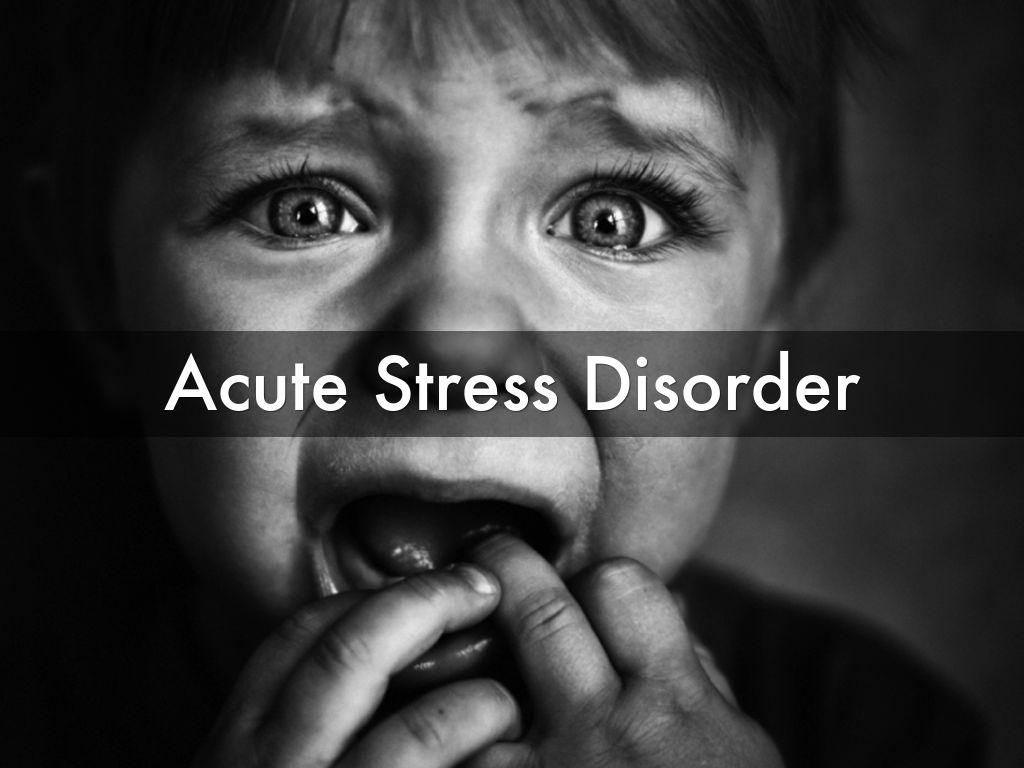If your any near and dear ones or you have any severe accident or death and experiencing excessive dissociative, anxiety and several other stresses related unnatural feelings, then you may be sure that it is the symptom of
Acute Stress Disorder (ASD).

Occurrence of Acute Stress Disorder
The disorder generally occurs to an individual after one month from when he or she is exposed to any big trauma that is completely unexpected. This disorder may occur in a healthy individual also after experiencing any huge trauma. An individual of any age can suffer this disorder. Generally 6% -33% individual persons suffer from
Precise Symptoms that are seen in Acute Stress Disorder
The disorder shows specific symptoms in the individuals who has a disability from this stress related disorder. The major symptoms include-
- Extreme disconnection in emotion
- Difficulty in experiencing any sort of pleasure
- Impermanent amnesia, or also known as “dissociative amnesia.”
- Depersonalization that is the individual feels himself/herself disconnected from the traumatic experience that he/she has suffered
- Derealization, that is, the individual suffering from ASD remains in a separate world in the dreams and shows strange and unfamiliar reactions and talks
- They even feel any unreal thing as real although they are “unreal”
- The individuals suffering from ASD feel extreme terror in their minds. Even sometimes they have nightmares
- The traumatic events are thought every moment and anxiety is elevated to an unnatural extent
- No pain is felt; that is the patients getting an excessive emotional trigger
- The persons feel themselves disconnected from the surroundings
- Memory loss for a prolonged period
The symptoms of Acute Stress Disorder can last for several days. It can last for more than two days to up to 30 days.

The symptoms are most common after
The factors that play a major role in the risk for Acute Stress Disorder
- Interpretation and perception– The individuals, think that they are responsible for the traumatic event
Supported networks- the individuals who are suffering from ASD may develop a low risk of the disorder if he/she has a good social behavior and many friends and family members who are very supportive
- Biological vulnerability– Some person may have abnormal hormones secreting from their glands in the brain and some different type of brain structure. They are much more susceptible to ASD than the other normal persons.
- Previous exposure– If an individual had experienced any trauma before or faced any type of abuse in the childhood and then they are more vulnerable to develop ASD.
- Age– older persons are less vulnerable to ASD as compared to younger persons.

Diagnostic guidelines
The occurrence of an incident of trauma or the exceptional stress and the onset of the various symptoms must have a temporal connection that is obviously clear. The onset of the symptoms must be immediate and clear. The onset must be in a few minutes. Symptoms must clearly show usually mixed and changing picture. An initial state of “Daze” may be seen along with other symptoms. The symptoms may not stay for a long time and may not predominate. The symptoms are resolved rapidly, maybe within few hours. If the symptoms are not resolved fast within minutes, then they will surely get reduced in 24-48 hours. Within 3 days of the trauma, the symptoms are reduced.
In some cases, the symptoms may last for more than a month. In that case, the patient should be diagnosed with Post Traumatic Stress Disorder (PTSD).

Psychiatric Management of Acute Stress Disorder
Physicians and psychiatrists have developed by intense research the Psychiatric management of Acute Stress Disorder. The different ways are-
- Establishing a therapeutic association with the individual suffering from the disorder
- Educating the patients on the subject of acute stress disorder (and post-traumatic stress disorder)
- Augmentation of treatment observance
- Coordination and care by cooperating with further clinicians
- Psychotherapies and psycho-educational interferences
- Monitoring of the treatment response of the patient
- Clinical assistance for the family members of the individual who may necessitate interference
- Assistance with several life issues like social and family relationships, financial support vocational issues, and living conditions.
Acute Stress Disorder is a curable disorder. The main thing we need to do is to talk and understand the patients properly and treat them with sympathy. The symptoms of ASD will diminish within a month, but if it prolongs, then a good psychiatrist should be contacted so that the ailment is cured properly.







